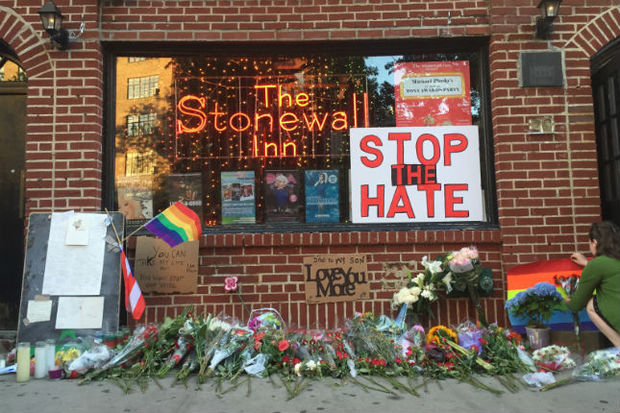By Allison Miller
April 1 2024

Nex Benedict was a transgender Oklahoma teen that went by he/they pronouns. He went to school at Owasso High and was a sophomore. They endured frequent bullying by their classmates for how they presented themselves, and in their words ‘the way that they dressed’. In February, Nex was attacked by three classmates in a girls bathroom, sustaining multiple head traumas, and they passed away the day after being taken to the hospital for their injuries. When the news outlets first published stories about the tragedy, an autopsy report hadn’t yet been released. Debate spiraled across the web regarding the logistics of Nex’s death. Oklahoma police had stood their ground on Nex’s death having nothing to do with the altercation. On March 27, it was declared that Nex’s death, the day after the altercation was a drug induced suicide.
Recent laws against gender affirming care and gendered bathrooms in Oklahoma continue to amplify the anti-trans agenda that has been perpetuated for generations. The Oklahoman makes this clear, recording 54 implemented anti-trans bills as of August 2023. While I cannot list them all, I will call attention to those relevant to this article:
House Bill 3214: Authored by Rep. Kevin West, R-Oklahoma City, the “Medical Ethics Defense Act” would grant a medical practitioner, healthcare institution or health care player the ability to decline a medical procedure that “violates” their conscience. It would also allow a religious medical practitioner, healthcare institution or health care player to make employment, staffing, contracting and admitting privilege decisions consistent with its religious beliefs. HB 3214 would not allow a medical provider to be scheduled for, assigned to or requested to perform, facilitate, refer for or participate in an abortion unless the practitioner consents in writing.
House Bill 3120: Authored by Rep. Danny Williams, R-Seminole, HB 3120 would amend the “Parents’ Bill of Rights” and allow parents to exempt their children from learning material that doesn’t align with their sexual, morality or religious beliefs. It would allow parents to withdraw their kids from sex education curricula. The bill would create a policy that would prohibit public schools from referring to a student by the pronouns they use if it doesn’t correspond to their assigned sex at birth. It would also penalize public school employees for asking a student about their preferred pronouns, and creates guidelines for AIDS prevention education.

It is made clear; trans medical rights, education, and overall existence are threatened by passed Oklahoman laws, and no doubt have these passed bills contributed to the tragedy that followed after their implementation. We are moving backwards; making the various forms of identity a punishable crime. Following Nex’s death, I was consumed by rage, and guilt. What part do I play in the matter? Despite my cisgender identity, I felt it necessary to reflect on Nex’s recent passing. I see my youth mirrored in Nex’s simple desire; to be respected. When I was a sophomore in highschool just 4 years ago, I identified as nonbinary for two years. I knew that when it came to gender (Nex’s grandmother put it precisely), I was ‘split down the middle’. At that place and time, there were no laws put in place that debated my right to exist as a gender nonconforming person. Non-binary meant to me that I was empowered by projecting either a female and male self. Here and there I leaned towards masculinity, and at one point even going by he/they pronouns. I explored and expressed the fleeting masculinity I experienced with even more pride than when I presented as female, and made meaning of that.
Moreover, I was preoccupied with my conflicting feelings of attraction for people of all gender identities. I was in middle school already navigating the dissonance between heteronormative expectation and my feelings. Naively, I believed there to be a split perception of queer; what I perceived to be ‘performative queerness’ versus what I felt: ‘real queerness’. My feelings anchored on my assumption that other people fronted obvious queerness, which must have meant there was an ingenuine practice and a genuine practice. Now that I am mature and can look back on this time constructively, I understand that performative queerness was a myth that I held onto to verify my own standing as an insecure queer child. Despite how prevalent these feelings were, I fought them to maintain a physically conventional identity; both as an ‘easier to fathom’ nonbinary, rather than assuming a fully transgender identity, and as a ‘confused, exploring’ bisexual, when I wasn’t confused about anything. Coming to terms with how my sexual orientation had always been a part of me, and I was grieving when I realized that I had lost years to choosing conformity over my own desires. Many of us do not have the privilege to reflect and heal, and especially not so early in life.
Even if we want to analyze youth’s identity maturity with the goal of evaluating how much respect they ‘deserve’, my experience highlights something important: You have the freedom to be a naive, immature queer child with a limited understanding of queerness. I would like to emphasize that this is the point of this article. The experience of gender and sexuality is the significant part, not how ‘ideal’ your trans experience may seem through the heteronormative lens. The feelings, the right to project an identity and build security through declaring one’s own path; these are a birthright. So too was my right to detransition when I came to assume a more fitting label for my current identity. Why should trans youth be in jeopardy when they choose to project a physical self that represents their mental image? Transness is just as much of a social construct as femininity and masculinity, and not treating it as such is a moral failing.
Making meaning of Nex and their gender identity does not lie in the specifics of how fixed or how temporary their label might have been. Too often are trans rights debated by the cisgender, for the off chance that it’s ‘just a phase’. Heterosexual patriarchy argues that we should outright deny respect to trans individuals if they will not ‘at least’ adhere to a conventional ‘fixed’ state of identity. Why is radical conformity an anchor to ‘earning’ respect? Worse yet, in Oklahoma, we cannot guarantee that Nex’s life would not have been in jeopardy if they were a more conventional trans person with a ‘fixed’ identity because of recently passed laws that deny the rights of these self identifying individuals as well.

Trans safety in Philadelphia – Interview with Aidan Gibbs, a Trans Man.
My experience as someone who was once transgender and then detransitioned later in life obviously cannot attempt to encapsulate the current day to day experiences of transness. To gain a more holistic approach to transness, I interviewed fellow writer and trans man Aidan Gibbs, who provided me with meaningful insight into the trans experience as well as reflected on the tragedy of Nex Benedict and the systems that continually fail trans men.
Generally speaking, how do you navigate being transgender?
“I do not pass as transgender. I do not get hate crimed or harassed, but my transness is insignificant and flies over people’s heads because I am not a passing transgender. If I passed for trans, I know I would be a lot less safe. I was called butch, and people assumed that I was performing transness for attention when I was more physically presenting as trans.”
So there was a time when you were pursuing a more ‘obviously’ trans presentation, presenting a more masculine image to the world?
“Yes, I used to pursue physical transness more outright. Now, I put active efforts into fitting more heteronormative expectations so that I can navigate life more safely. I know that I would be less safe if I presented myself in ways that I would prefer.”
Being that you are familiar with the Nex Benedict tragedy, would you be willing to reflect on the death of Nex?
“When it comes to the Nex Benedict situation, I clicked past everything that came up about it. It’s nothing I haven’t heard before. I thought about going to the memorials, but their death hits uncomfortably close to home. The media doesn’t cover trans men as trans men, but instead as broken women that need to be saved. It’s as if trans men can’t exist under patriarchy. We are treated like ‘Damaged goods’; transness is seen as a disorder that comes from ‘not having met the right man to make you normal and fix you up!’”
What procedures could be put in place to make trans people feel comfortable as trans people, without feeling the need to conform in order to live judgment free?
“Making a concerted effort to make people feel safe is awkward and backfires often. I think preventative measures are the way to go. One of the major things that contributes to trans discomfort is traditionalism. The idea that american heteronormative expectations of husband, wife, and nuclear family is some kind of universal pushes anti trans agenda. At the end of the day, transness is as much a construct as heteronormativity. These ideas contribute to the erasure of trans identity. The proportion of people that are transgender and detransition is so blown out of proportion in a way to try to prove that you can ‘overcome’ transness if you want to!”
When it comes to the trans experience, what limitations arise in cisgender people’s expectations that prevent the connection required to make judgment free interactions?
“One of the things people, cisgender or not, don’t understand is that gender expression, gender confusion, and gender identity are THREE SEPERATE THINGS. You can express yourself one way, be confused here and there, and identity can be drastically different from self expression.”
When Nex was killed and the news came out, I hurriedly googled the situation to see his face. I wanted to look in the eyes of a child that Oklahoma state laws deemed as worth less than frozen embryos in a laboratory. When I saw that their obituary photo was a sophomore student portrait, I teared up. Why do American systems fail our children again and again? As an aspiring psychologist hoping to practice one day with an emphasis on youth’s rights, I can’t live to see much more of this.
“Nex loved to draw. He loved reading. His favorite video games were Ark and Minecraft. He would have done absolutely anything for his cat, Zeus. He was a straight-A student. I hope we remember this little Minecraft loving nerd for more than how he died. I hope we remember that he loved friendship bracelets first” (https://www.autostraddle.com/nex-benedict-tribute/).
Nex was a child. Their story is not just a case study on the cause and effects of local Oklahoman laws: Nex’s passing elicits the long-standing disregard for trans youth’s rights to live in peace.

